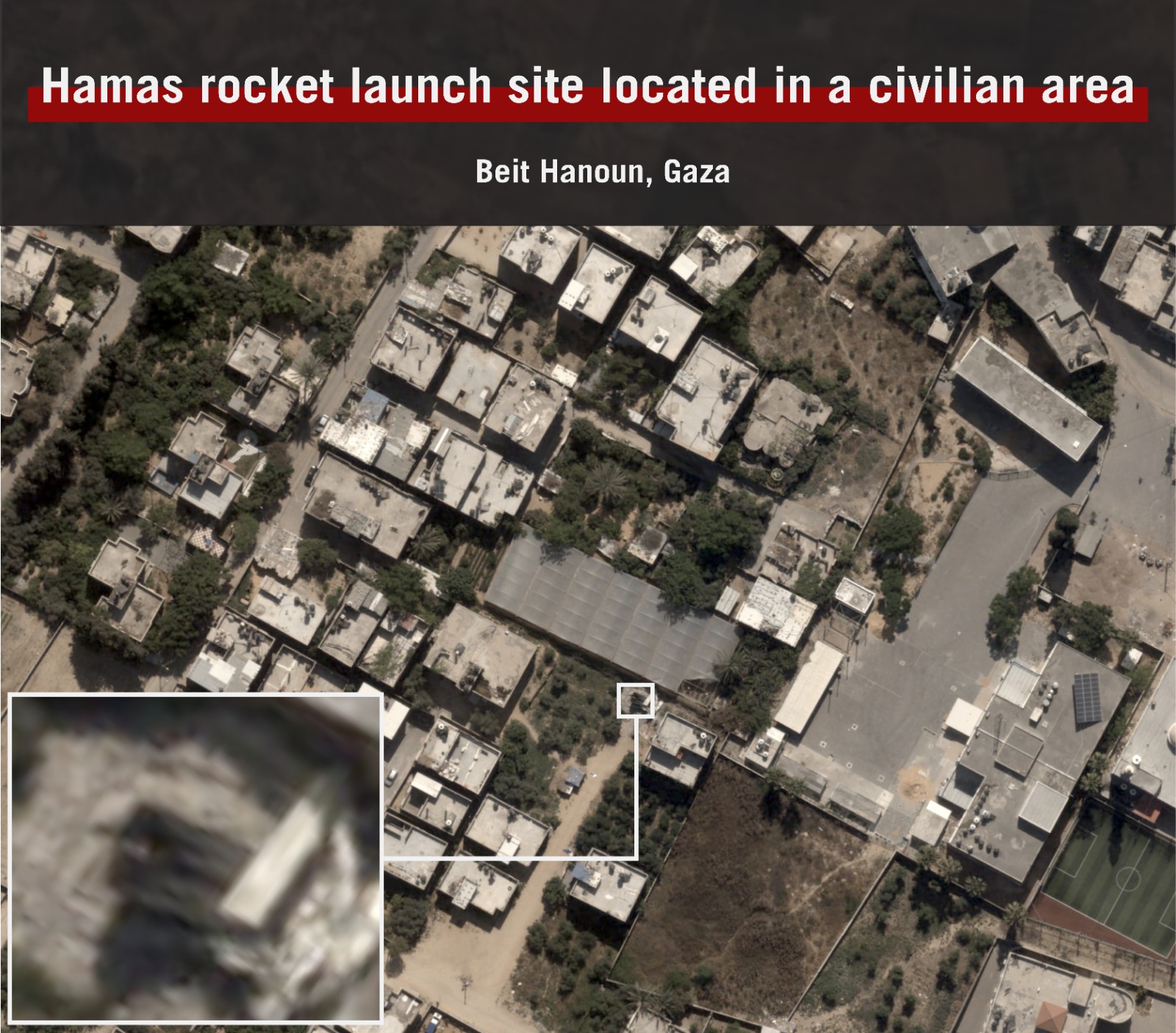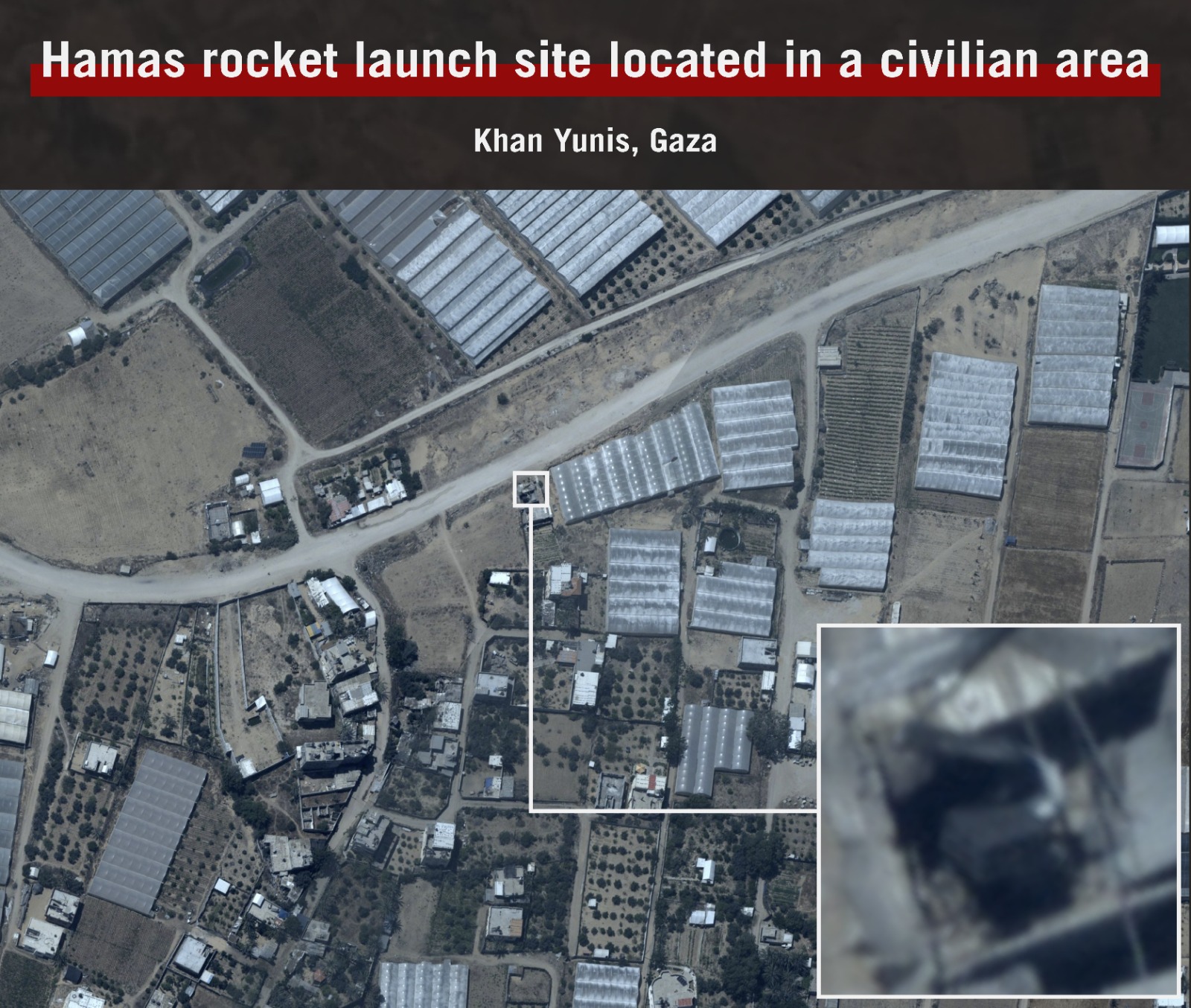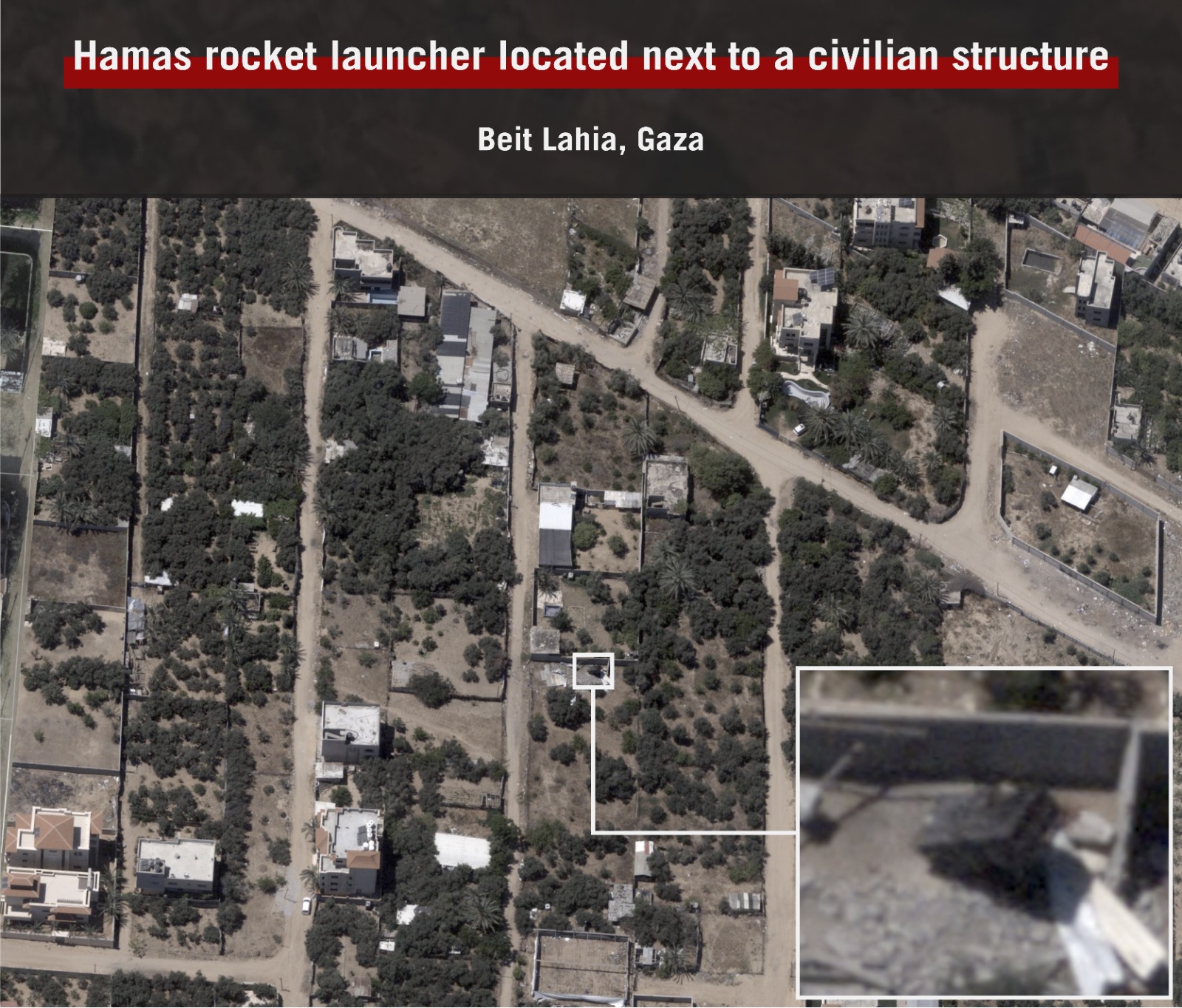Proportionality in Conflict
by Mitchell Bard
Israel seeks peace and is still waiting for leaders of the Palestinians and the other Arab states at war with Israel to step forward and follow the examples of Anwar Sadat and King Hussein by ceasing their support for terror and resuming negotiations. Until that happens, Israel must take prudent security measures to protect its citizens.
Israel has launched military campaigns at different times to respond to acts of war perpetrated by Hamas, Palestinian Islamic Jihad (PIJ) and Hezbollah. In prosecuting these wars, Israel has come under fire for using “disproportionate” force, but how do you determine the proportionate use of military force?
Since the stated objective of these terror groups is the destruction of Israel, isn’t the appropriate response their destruction? Wouldn’t random missile strikes on Lebanese and Palestinian cities be proportionate to Hamas and Hezbollah rocket attacks on northern and southern Israel? When Palestinian terrorists plant bombs at Israeli shopping malls and kill and maim dozens of civilians, would the “proportionate response” be for Israelis to plant bombs in Palestinian malls?
Can you imagine any of Israel’s critics accepting those responses? Of course not. No one in Israel believes these would be legitimate uses of force either and, therefore, Israel is left with the need to take measured action against specific targets to stop terrorist attacks and deter future ones.
It is easy to condemn Israel from afar, but imagine if terrorists fired thousands of rockets at London, Paris, Berlin, or any other city in the West (or East for that matter). What would the governments do? If terrorists based in Cuba fired thousands of rockets into Miami, would Americans demand the United States respond, but only if they could do so without killing any civilians?
It’s not just a hypothetical. In reaction to an attempt to assassinate President Bush in 1993, the U.S. launched 23 cruise missiles at Iraq’s intelligence headquarters and hit a civilian neighborhood in the process. Colin Powell later said this was an “appropriate, proportional” response. After 9/11, the United States used overwhelming force in the war in Iraq and, though civilians were not targeted, thousands were killed. There was no discussion of proportionality.
Daniel Gordis noted that in World War II the Allies killed perhaps as many as 500,000 German civilians. By comparison “only” 40,000 Brits died in the Blitz and no Americans were killed on American soil by the Nazis. Would Israel’s critics, he asked, look at the imbalance and claim “the Allies conducted an immoral war against Germany?”
The United States uses overwhelming force against its enemies, even though the threats are distant and pose no danger to the existence of the nation or the immediate security of its citizens. By contrast, the threat Israel faces is immediate in time and physical proximity, and poses a direct danger to Israeli citizens.
In 2006, when Hezbollah launched more than a thousand rockets into northern Israel, approximately one million Israelis had to flee their homes or live in bomb shelters. Hamas and PIJ began bombarding Israel on May 10, 2021. Since then, more than 3,000 rockets have fallen on Israel’s cities and civilian population – not its military installations. The men, women and children who live within range of the rockets go about their lives in a perpetual state of trauma and fear. Ordinary tasks like driving to work, walking to the bank, or taking children to the park cannot be completed without putting their lives at risk.
When the red alert sounds indicating an incoming rocket, Israelis have 15 seconds to find shelter. What if you are not near one? How do you get an elderly parent or disabled child to safety in that amount of time?
Imagine how it must be to live under those conditions. What is a proportional response to being forced to live this way?
The IDF Ethics Code mandates that, whenever possible, soldiers must warn non-combatants that they are in an area where it is dangerous to stay. During Operation Cast Lead, the IDF employed a variety of unprecedented efforts to minimize injury to non-combatants, including warning leaflets, phone calls, and non-lethal warning fire. They have used similar methods in Operation Guardian of the Wall in 2021. As Asa Kasher noted, no army would endanger its soldiers to avoid hitting neighbors of an enemy who received warnings to leave the area.
Is there another army in the world that warns people to leave an area they intend to attack even though it gives up the element of surprise and allows the terrorists to escape with the civilians? How many other militaries order their pilots to abort bombing missions if civilians are detected in the area?
If Israel was not seeking to avoid civilian casualties or, as some charge, targeting them, the number of casualties would be in the thousands, if not the tens of thousands.
Consider this comparison. During Operation Guardian of the Wall, Israel struck more than 1,500 targets. Hamas claimed there were 248 civilian casaualties but, if IDF reports on the number of terrorists killed is accurate, the number is probably closer to 80. President Obama authorized 542 drone strikes that killed 324 civilians.
Even the director of UNRWA’s operations in Gaza acknowledged that Israel’s attacks in May 2021 were precise and directed at military targets. “They did not hit,” he said, “with some exceptions, civilian targets.” Under pressure from Hamas, with whom he must cooperate to do his job, he later revised his comments to fit the terrorists’ narrative.
Proportionality is not simply a numerical comparison. Israel is under no obligation to allow more of its citizens to be killed to make the casualty statistics more even. In addition, as Kasher explains, “the number of Israeli casualties is not a reliable measure of the threat posed by enemy rockets. A Grad rocket hit a Beersheba classroom on December 31, 2008; had the missile hit the school when classes were in session, dozens of schoolchildren would have been killed. Luck does not diminish the threat posed by an attack.”
The Israeli Ministry of Foreign Affairs adds:
Furthermore, as Kasher points out, the laws of warfare “were intended to guide a military conflict between armies with clear chains of command in which all the troops wear uniforms, bear arms openly, and are responsible to the civil government of a certain state.” None of these characteristics apply to the terrorist organizations.
No innocent Palestinians or Lebanese would be in any danger if the Palestinian Authority took steps to stop terrorism and the Lebanese government fulfilled the requirements of UN Security Council Resolution 1559 calling for the disarming of Hezbollah and the deployment of the Lebanese army in south Lebanon. Israel would have no reason to take military action if its citizens were not being attacked.
 |
 |
 |
Click photos to enlarge
In addition, no innocent Palestinians or Lebanese would be in the line of fire if terrorists did not deliberately hide among them. If the peace-seeking Palestinians and Lebanese prevented the terrorists from living in their midst, Israel would have no reason to attack their neighborhoods.
It is a tragedy whenever innocent lives are lost, and Israelis have consistently expressed their regret over Arab casualties. By contrast, when innocent Israelis are murdered by terrorists, Hamas, PIJ, and Hezbollah celebrate the murders and honor the killers.
Israel’s army is not infallible. As a democracy, when Israeli soldiers make mistakes in battle, they are called to account for those errors. On those occasions when noncombatants are injured or killed, investigations are launched, the Israeli public debates the military’s actions, and punishments are imposed if courts find soldiers guilty of a crime.
Sources: “Hamas Admits 600-700 of Its Men Were Killed in Cast Lead,” Haaretz, (November 9, 2010).
“Hamas MP Fathi Hammad: We Used Women and Children as Human Shields,” Al-Aqsa TV, cited in Dispatch #1710, MEMRI (February 29, 2008).
Micah Zenko, “Obama’s Final Drone Strike Data,” Council on Foreign Relations, (January 20, 2017).
(John Lancaster and Barton Gellman, “U.S. Calls Baghdad Raid A Qualified Success,” Washington Post, (June 28, 1993).
“Iraq War,” Encyclopedia Britannica, (March 2, 2021).
Amira Hass, “Following Backlash, UNRWA Director Apologizes for Saying Israeli Army Rarely Attacked Civilians,” Haaretz, (May 26, 2021).
Daniel Gordis, “The latest battle in the War of Independence,” Israel From the Inside with Daniel Gordis, (May 30, 2021).


